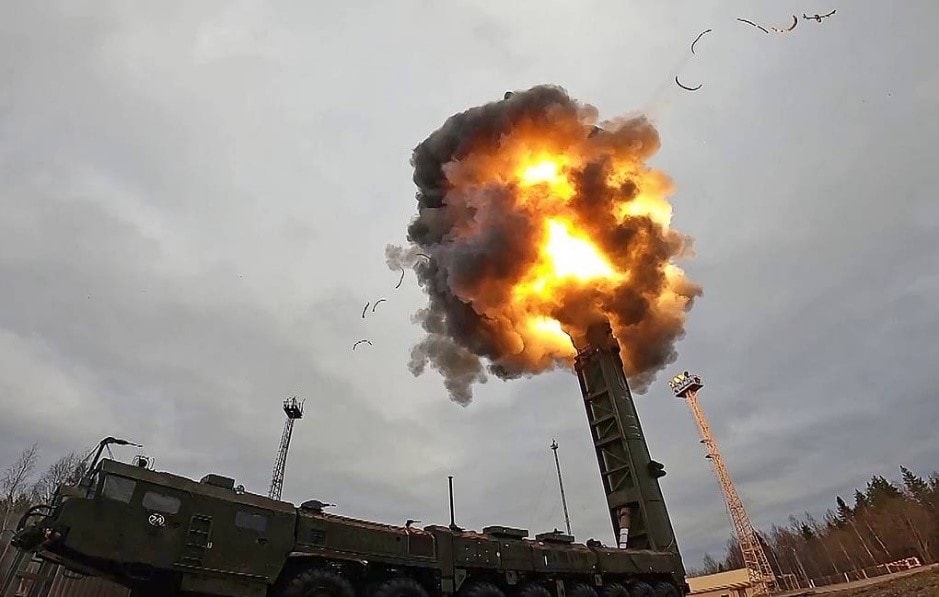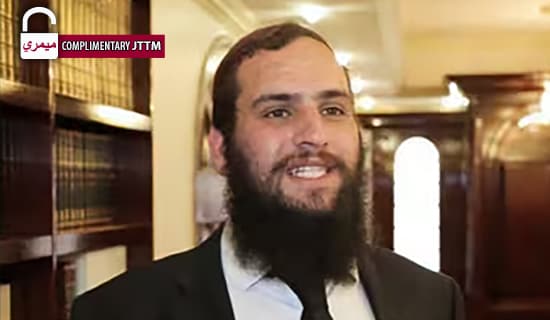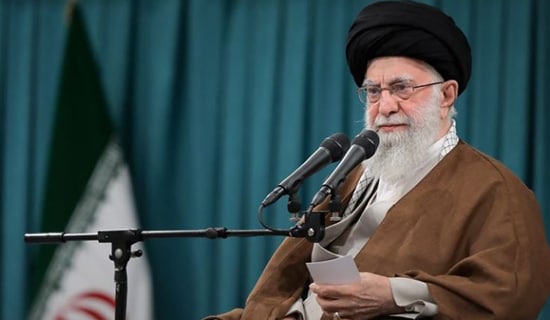The following are excerpts from a report, by Al-Jazeera TV that aired August 16, 2005, about female Palestinian suicide bomber Hanadi Jaradat. Jaradat was responsible for the October 2003 bombing of the Arab-owned restaurant Maxim in Haifa, Israel, which killed 19. (To view this clip, visit: http://memritv.org/clip/en/817.htm.)
Hanadi Jaradat: "By the power of Allah, I have decided to become the sixth female martyrdom-seeker, who will turn her body into shrapnel, which will reach the heart of every Zionist colonialist in my country, and every settler or Zionist who has tried to sow death in my country. We are not the only ones who must sow and reap..."
Reporter: "Her cousin Sami was the one who filmed her."
Sami Jaradat: "I filmed her with a video camera. There was no need to prepare a special room. She could stand and say whatever she wanted, and that's it.
"She was more courageous than a man. I was standing in front of her, and although she was the one going [on the operation], I was more mentally distressed than her.
[...]
"At the time, Amjad Al-'Ubeidi was in charge of the Al-Quds Squads. Amjad rented an apartment in Jenin, where people would sleep or be filmed before becoming martyrdom-seekers. I filmed her in that apartment. He gave me the key and left an explosives belt there. I went to the apartment, showed her the belt, and gave it to her. It is not as complicated as you portray. Even if a girl doesn't want to undress in front of me, she can wear her clothes, and you give her the belt and show her how to put it on.
[...]
"She suggested going to Jerusalem. When I saw this wasn't possible, I said to her: 'Jerusalem is too difficult.' We were in the West Bank and would have to pass 10 checkpoints on the way. There is a checkpoint between every two villages or towns. So I said it would be easier to get to Haifa. 'In Haifa you could look for a military base, and carry out your operation there.'
[...]
Amjad Al-'Ubeidi, commander of the Islamic Jihad in Jenin: "It is not that complicated. We produce primitive explosives, from which we make an explosives belt, a bag, or something. You can get most of it easily these days. There is nothing special about it. The belt is like this shirt – you wear it and there is a button here. You push the button, and that's it. All she had to do was push a button. There's nothing to learn. She would wear it... Hanadi, especially, being an educated lawyer, who knows what to do, who speaks English, and gets along by herself - she did not need anyone to take her.
[...]
"From the Haifa operation in which Hanadi was martyred until my capture, I did not see her family at all. What can I possibly say to console them? They deserve to be consoled, but words are not enough. They lost [a son before Hanadi]. Nothing is more precious than a son. They lost a son. Losing a son affects the soul many times more than losing a daughter in our society. Losing even 10 daughters is not as bad as losing one son. That's how it is in our society. A son is more dear to the parents than a daughter. Since his role in life is greater, the pain is heavier."
[...]
Hussein Al-Sheikh, West Bank Fatah commander: "When Wafa Idris did this, she played a role, I think, in the shaping of a new culture among Palestinian girls. She has become a source of pride. Many girls, for various reasons, wanted to play the same role.
[...]
"What drove Palestinians to this level is the occupation. On the other hand, the tight Israeli security measures and the strict searches of young men by the occupation forces drove the Palestinian organizations to incorporate women. Girls and women were not subjected to strict Israeli security measures, and it was easier for them to reach a certain place and carry out a mission than it was for young men."
[...]
Interviewer: "From the moment you decided to carry out this operation, how did you prepare yourself for it?"
Samar, failed suicide bomber: "I was very, very happy, happy on the inside. I tried to grow closer to my parents, so they wouldn't be mad at me. I might have been a little confused, but not too much. The joy that filled me overcame everything else."
Interviewer: "What were you happy about?"
Samar: "That I was going to become a martyr."
Interviewer: "Happy? Someone about to end his life is happy?"
Samar: "But there is life after death. There is life after death."
Interviewer: "You think so?"
Samar: "Yes. There is life after death. Every person who dies will be resurrected and held accountable. I will die and be resurrected."
[...]
Hanadi Jaradat's mother: "If I had known, would I have let my daughter die? I had already sacrificed one child, would I sacrifice another? Would anyone say this to his parents? There is nothing more precious than a child. Even if they offered you all of Palestine, you would rather give it all up than lose your son. If you have a child, nothing is more precious. That is how Allah wanted it. Allah be praised."
Interviewer: "If you had known, what would you have said to her?"
Hanadi's mother: "I would not have let her go. I would have tied her up. I would have locked her in her room, and stayed with her for an entire year."








